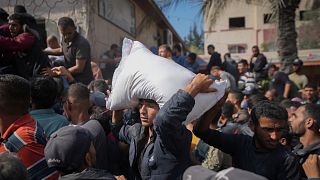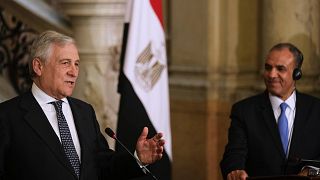Sudan
Pompeo visits Sudan on a quest to reinforce Israeli Arab ties.
US Secretary of State Mike Pompeo arrived in Sudan on Tuesday, after the US-brokered Israel-UAE deal. A trip to encourage more Arab countries to stabilize ties with Israel.
Israel has no official diplomatic ties with Sudan, which for years has backed hardline Islamist groups under its former leader, Omar al-Bashir.
The current transitional government has promised to break from the Bashir regime after his ouster last year.
In Khartoum, Pompeo was due to meet with Prime Minister Abdalla Hamdok and the Chairman of the Sovereign Council, Abdel Fattah el-Burhan, to address continued US support for the civilian-led transitional government and demonstrate support for the strengthening of the alliance between Sudan and israel.
- Huge economic pressures -
Since January Washington has upgraded its diplomatic representation in Khartoum from the level of charge d'affaires to posting an ambassador.
The Pompeo visit comes as Sudan is in deep economic crisis, hit by the long years of US sanctions and the 2011 secession of the country's oil-rich south.
Grappling with high inflation and the coronavirus pandemic, the country badly needs more foreign assistance and investment, but that is constrained by the state sponsor of terror designation.
The United Nations says more than 9.6 million people -- almost a quarter of Sudan's population -- are suffering severe food insecurity.
Sudan is "extremely keen to have US sanctions lifted and they are under heavy UAE influence," said Cinzia Bianco, a research fellow at the European Council on Foreign Relations.
While Bashir is on trial over the Islamist-backed coup that brought him to power over three decades ago, the new transitional government in Khartoum is at pains to distance itself from his legacy.
It has agreed in principle to hand Bashir over to the International Criminal Court in The Hague for his role in the Darfur conflict on charges of genocide, war crimes and crimes against humanity.
Conflict broke out in the Darfur region in 2003 when ethnic minority rebels staged an uprising against the government, citing marginalisation and discrimination.
Khartoum responded by unleashing the feared Janjaweed militia, mainly recruited from Arab pastoralist tribes, in a scorched earth campaign that left 300,000 people dead and displaced 2.5 million.
Hamdok has made finding a peace deal with rebel groups a priority, in order to bring stability to restive regions that also include Blue Nile and South Kordofan.
****AFP****












Go to video
World Food Programme to halt aid for 650,000 women and children in Ethiopia
Go to video
Sudan: Rapid Support Forces attack in western Darfur kills at least 30, according to activist group
Go to video
South Sudan to send delegation to the U.S. in a effort to appease tensions
01:09
U.S. calls on Rwanda to withdraw troops from eastern DRC and end support for M23 rebels
02:00
Two years of war in Sudan: international conference aims to bring relief to suffering population
Go to video
Sudan: World Food Programme warns of hunger crisis, asks for more funding